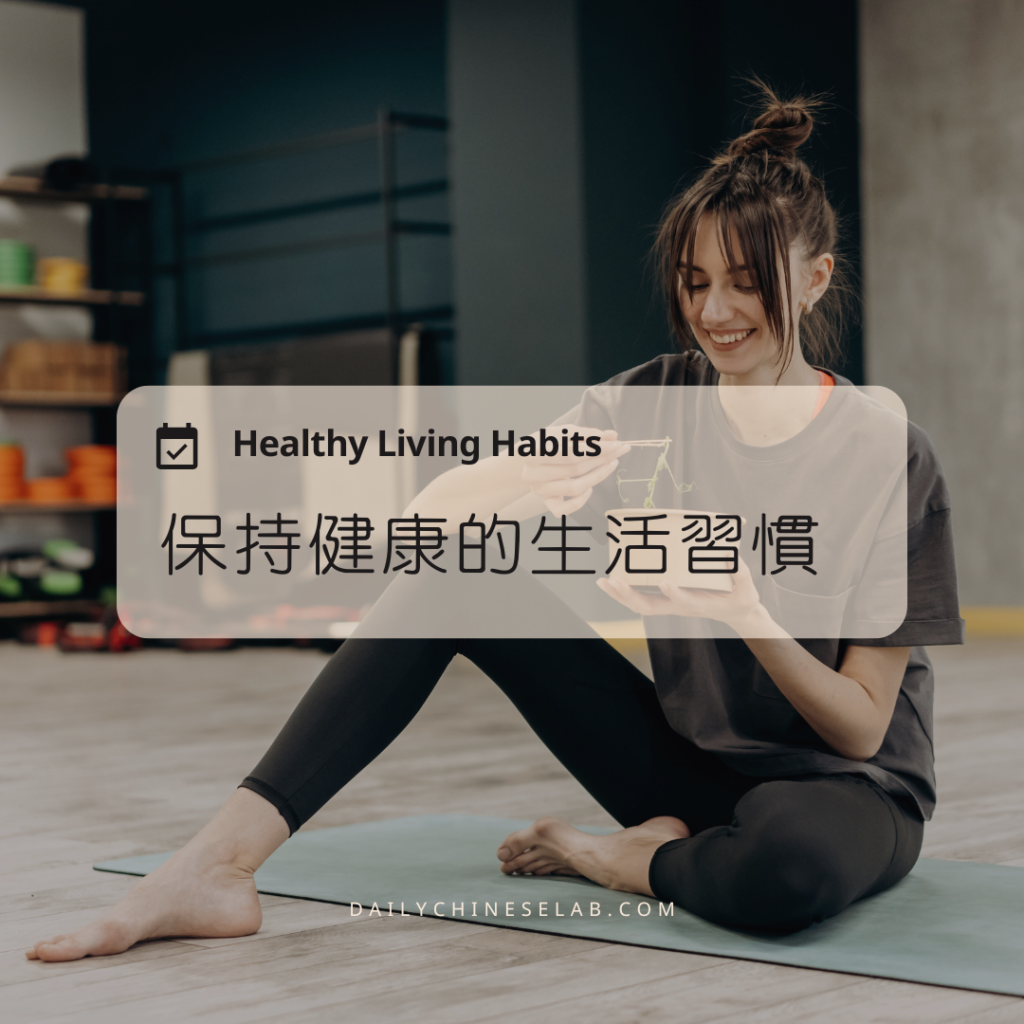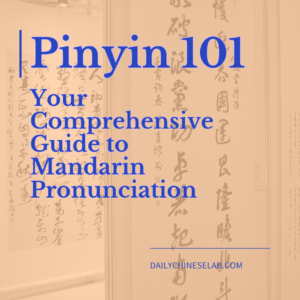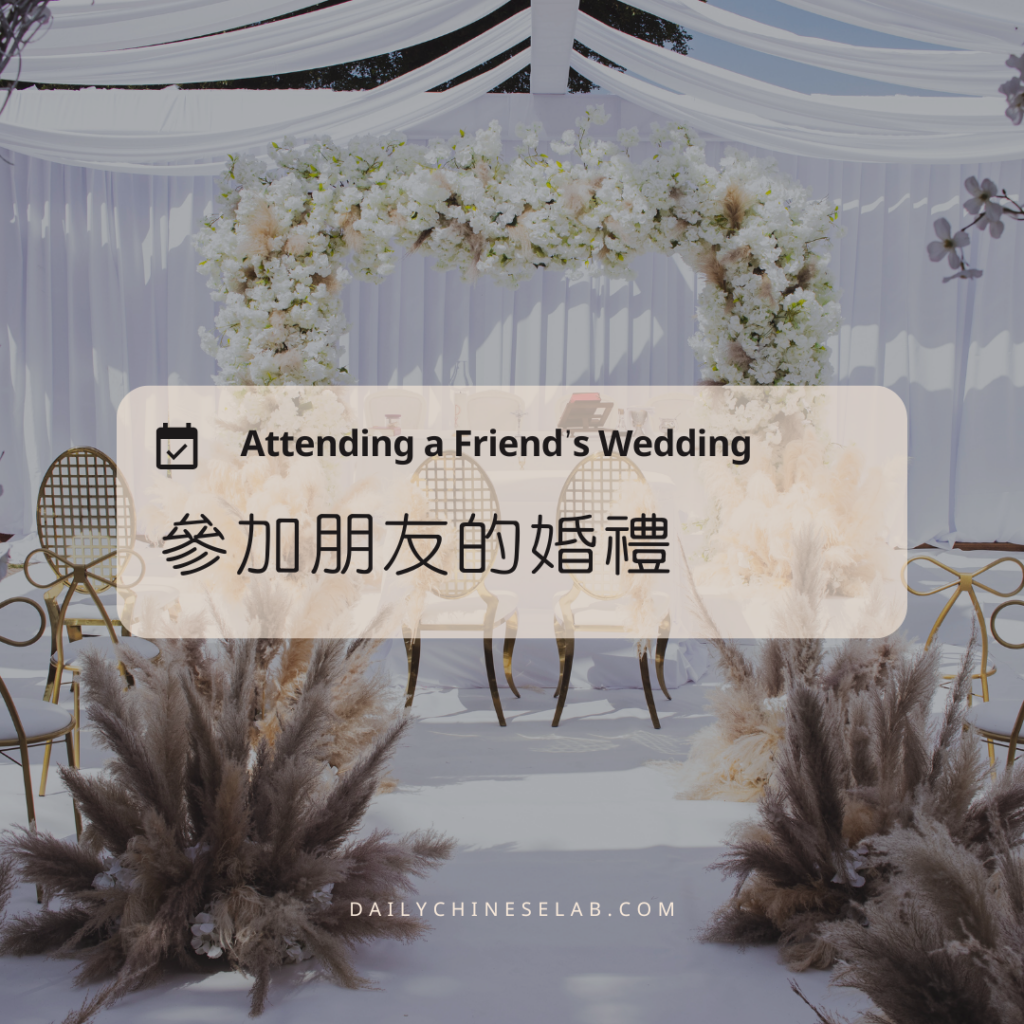Enhance your Chinese proficiency with conversations focused on adopting healthy lifestyle habits. Learn new vocabulary and grammar structures through practical exercises and examples.
中文單字 Vocabulary
- 健康 (jiànkāng) – Health
- 規律 (guīlǜ) – Regular
- 生活習慣 (shēnghuó xíguàn) – Living habits
- 早睡早起 (zǎo shuì zǎo qǐ) – Go to bed early, wake up early
- 運動 (yùndòng) – Exercise
- 跑步 (pǎobù) – Jogging
- 瑜伽 (yújiā) – Yoga
- 水果 (shuǐguǒ) – Fruits
- 蔬菜 (shūcài) – Vegetables
- 垃圾食品 (lājī shípǐn) – Junk food
對話內容 Dialogue
A: 你最近看起來精神很好,有什麼秘訣嗎?
Nǐ zuìjìn kànqǐlái jīngshén hěn hǎo, yǒu shé me mìjué ma?
You look very energetic recently. Do you have any secrets?
B: 我最近開始保持規律的生活習慣,比如早睡早起和多運動。
Wǒ zuìjìn kāishǐ bǎochí guīlǜ de shēnghuó xíguàn, bǐrú zǎo shuì zǎo qǐ hé duō yùndòng.
I’ve started maintaining regular living habits, such as going to bed early, waking up early, and exercising more.
A: 真的嗎?運動多久一次?
Zhēn de ma? Yùndòng duōjiǔ yīcì?
Really? How often do you exercise?
B: 每天早上跑步三十分鐘,還有做瑜伽。
Měitiān zǎoshang pǎobù sānshí fēnzhōng, hái yǒu zuò yújiā.
I jog for 30 minutes every morning and do yoga.
A: 聽起來不錯!還有呢?
Tīngqǐlái bùcuò! Hái yǒu ne?
Sounds good! What else?
B: 我也開始吃得更健康,比如多吃水果和蔬菜,少吃垃圾食品。
Wǒ yě kāishǐ chī de gèng jiànkāng, bǐrú duō chī shuǐguǒ hé shūcài, shǎo chī lājī shípǐn.
I also eat healthier, like eating more fruits and vegetables and less junk food.
A: 聽起來我也要學你,開始改變我的生活習慣!
Tīngqǐlái wǒ yě yào xué nǐ, kāishǐ gǎibiàn wǒ de shēnghuó xíguàn!
It sounds like I should learn from you and start changing my habits too!
問題延伸 Practice Questions
- 用「比如」造三個句子,說明你的生活習慣或愛好。
- 你每天會運動嗎?做什麼運動?
- 你覺得早睡早起容易做到嗎?為什麼?








